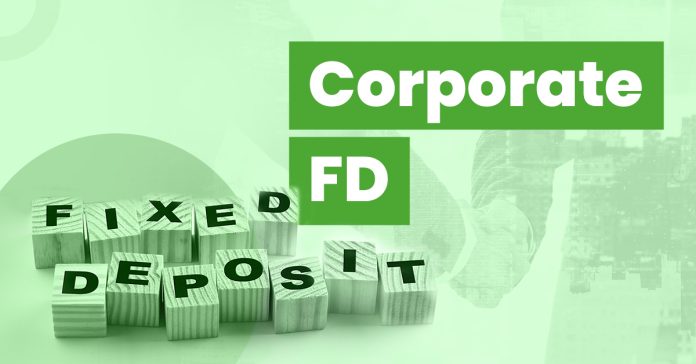Investing in corporate FD is safe as the risk is low and market fluctuations do not affect them. Corporate FDs can offer higher interest rates than bank FDs.
Everyone wants better returns. Some take risks for high returns, while others focus on low but fixed returns and safe investments. Corporate FD is also an investment option for fixed returns. Like every investment, there can be minor risks but the risk of corporate FD can be easily managed with a little effort. According to SBI Securities, if investors focus on established companies, good credit rating, past track record etc. before investing in corporate FD, then the risk can be easily managed. Every investor knows that no investment is without risk. Let us discuss some of the benefits of corporate FDs, their risk factors so that you can know whether this investment instrument is for you or not.
Why Corporate FD is better
Corporate FDs offer higher interest rates than bank FDs. For investors looking for better returns without investing in the stock market, corporate FDs are a better option. Corporate FDs are offered by non-banking financial companies (NBFCs) and HFCs, which are regulated by the RBI and the National Housing Bank. It is also a good way to diversify your portfolio. Adding a part of your funds to corporate FDs will maintain balance in your investment portfolio. Unlike market-linked investments, returns on corporate FDs are fixed. Corporate FDs are quite simple. You know how much you are investing, for how long and what returns you will get. There is no need for any complex formula or market analysis.
Risks in Corporate FDs
Talking about the risk in corporate FDs, according to SBI Securities, there is a risk of default, as the issuer may default due to several reasons. In such cases, recovery of deposits can be a very difficult and long-term affair for the investor. Corporate FDs pay interest periodically at a fixed rate. During this period, inflation may rise due to macro factors and this will affect the real return on corporate FDs. Corporate FDs also have price risk, where if the rates in the market rise, you are stuck at lower rates. Also, if the rates are low, there is no benefit of capital appreciation, which is available in traded bonds and debt mutual funds.
Do this work before investing
Before investing in corporate FDs, it is better to first compare the corporates and check if they have a good rating from CARE, CRISIL and ICRA. AAA rating is considered the best. Investors should also look at the company’s track record of profit and loss. Most banks levy a penalty on FD investors for premature withdrawal. This usually happens after about three months of investment. The same is the case with corporate FDs, and there is a penalty for premature withdrawal. It is better to know about the penalty before investing.


